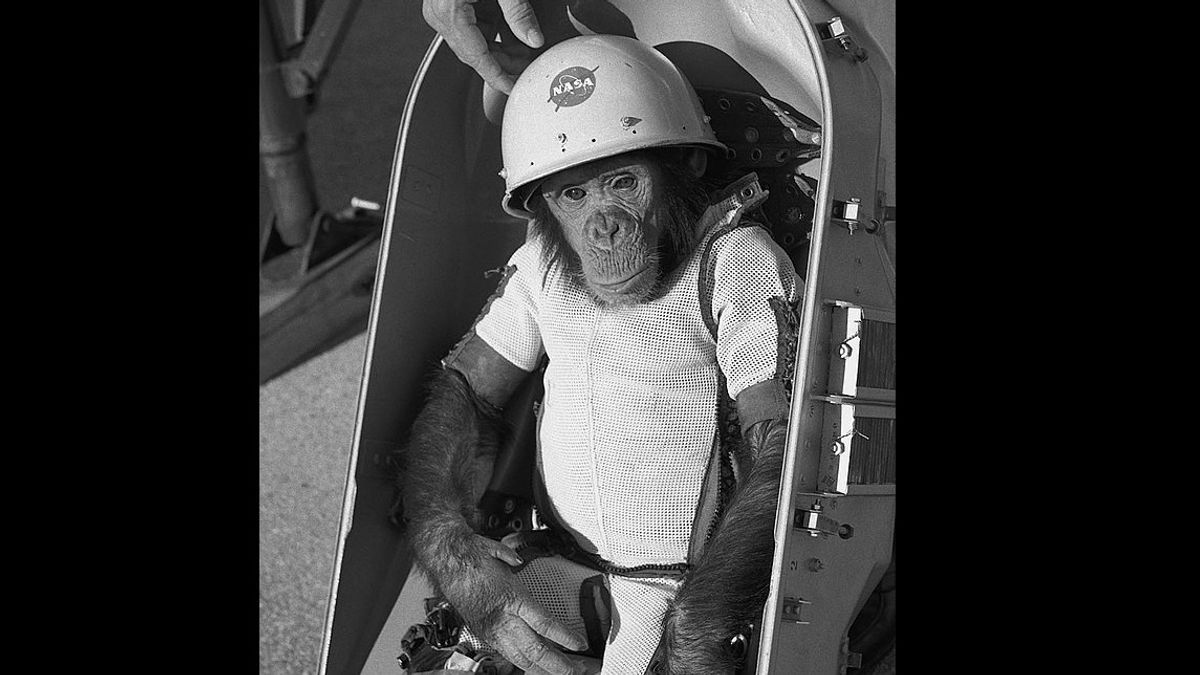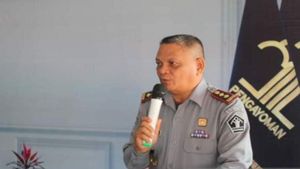JAKARTA - A chimpanzee that was sent into space by rocket by the United States was found alive and well when he returned to earth. He was found in a radius of 676 km from the rocket launch site, Cape Canaveral on January 31, 1961 precisely today 60 years ago.
Ham's departure, the chimpanzee's name, is on a mission to ensure that humans can survive spaceflight, think clearly, and carry out useful activities outside the Earth's atmosphere.
According to a BBC report, Ham was trained to pull the lever in response to flashing lights during flight. He performed several operations with success while traveling at a speed of 8,000 km per hour at an altitude of 250 km above Earth.
Ham, who is originally from African Cameroon, was one of the six "astrochimp" candidates. He underwent intensive training in New Mexico and Cape Canaveral in Florida.
The reason why it chooses chimpanzees over dogs - which Russia has sent into space several times - is because they look more like humans.
Ham ChallengeAt launch, Ham's spacecraft accidentally took him much higher and faster than the US space agency NASA wanted. As quoted by Discover magazine, Ham had a problem when his capsule lost some of its air pressure, even though the chimp was not injured because he was sealed in the inner chamber.
We'll never know what Ham was thinking during those six and a half minutes of weightlessness. But, like the astronauts of Mercury later on, Ham could see through the tiny windows of the capsule.
Ham managed to pull the lever at just the right time, doing it only slightly slower than he did during his training on Earth. Ham's success proved that human astronauts can also perform basic physical tasks in orbit.
About 16 and a half minutes after launch, Ham fell into the sea. Even though Ham's capsule was submerged in water, the rescue team immediately helped him. And Ham made it back to earth safely while on board the dive ship USS Donner.
The English, Chinese, Japanese, Arabic, and French versions are automatically generated by the AI. So there may still be inaccuracies in translating, please always see Indonesian as our main language. (system supported by DigitalSiber.id)










